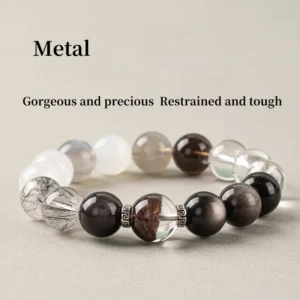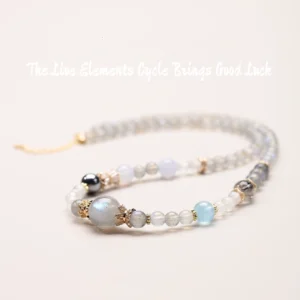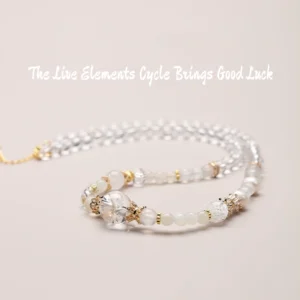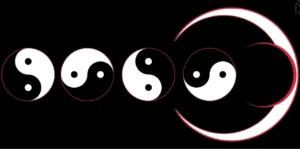
Metal Element Explained: How It Balances Energy in Feng Shui, Traditional Chinese Medicine, and Astrology
In the ancient philosophy of the Five Elements, Metal represents more than just strength and structure—it symbolizes precision, clarity, and the power of transformation. Rooted in traditional Chinese medicine, Feng Shui, and even Eastern astrology, the Metal element governs how we set boundaries, process emotions, and achieve success through discipline and resilience. In this article, we’ll explore how Metal energy influences your health, environment, and destiny, and how to harmonize with it in everyday life.
Introduction to the Metal Element in Five Elements Philosophy
The Five Elements (Wu Xing)—Wood, Fire, Earth, Metal, and Water—form the core of many traditional Chinese systems, including Feng Shui, Traditional Chinese Medicine (TCM), and Chinese astrology. Each element represents a type of energy, personality, season, and organ system, working in a cycle of creation and destruction to maintain cosmic balance.
What Is the Metal Element?
The metal element symbolizes structure, clarity, precision, and inner strength. It is associated with autumn, dry climates, and contraction energy. Metal represents the ability to cut away what no longer serves, making room for reflection and transformation.
Metal in the Cycle of Creation and Destruction
In the Five Elements system, there exists a continuous cycle of generation and control, in which the Metal element holds a distinct role. In the cycle of generation, Metal generates Water—just as metal melts into liquid under intense heat, resembling the form of water. Earth generates Metal, as metals are often hidden within the soil, nurtured by the earth. In the cycle of control, Metal overcomes Wood—metal tools can cut through trees. Fire overcomes Metal—intense flames can melt metal. Within this dynamic cycle, Metal both influences and is influenced by the other elements, maintaining the delicate balance of the entire Five Elements system.

The Metal Element in Traditional Chinese Medicine (TCM)
Associated Organs: Lungs and Large Intestine
In Traditional Chinese Medicine, the Metal element governs the lungs and large intestine. The lungs are responsible for dispersing Qi (life energy), while the large intestine handles elimination and detoxification. When Metal energy is balanced, these organs function optimally, supporting respiration, immunity, and waste elimination. On the other hand, when the Metal element is out of balance, the functions of the lungs and large intestine may be impaired, leading to issues such as coughing, asthma, or constipation.
Emotional and Physical Influence
The Metal element is associated with the emotion of grief. When Metal energy is excessive, a person may feel overly sorrowful or sentimental; when deficient, one may experience depression or a lack of motivation. Physically, the strength of the Metal element directly affects the respiratory system and the large intestine. When Metal energy is abundant, the lungs function smoothly, the large intestine works efficiently, and the body feels energized. Conversely, an imbalance in the Metal element may result in respiratory illnesses such as pneumonia or bronchitis, as well as digestive issues like colitis or constipation.

Feng Shui Applications of the Metal Element
Using Metal Energy in Your Home or Workplace
In Feng Shui, the metal element is linked to the Helpful People and Travel area (Northwest) and Children and Creativity area (West) of the Bagua map. Incorporating metal energy in Feng Shui layouts enhances clarity, precision, and supportive relationships.
Best Placements, Colors, and Shapes
To activate metal element energy, decorate with white, grey, or metallic tones. Round shapes, metallic materials (such as brass, copper, or silver), and wind chimes also boost this energy. Place metal objects in the West or Northwest areas of your home or office to encourage flow, communication, and creative output.
Feng Shui tip: Add a round silver mirror in the West corner to support children’s development or creative pursuits—this harmonizes with metal’s Feng Shui layout principles.
The Metal Element in Chinese Astrology
How the Metal Element Appears in Your Chinese Zodiac or Bazi Chart
In Chinese astrology, the Five Elements (Wu Xing) cycle through your BaZi chart, which is based on your year, month, day, and even hour of birth. Those born in Metal years—such as 2020 (Yang Metal Rat) or 2021 (Yin Metal Ox)—carry the energy of Yin-Yang Metal, often characterized by strength, determination, and a strong sense of justice. Understanding the Yin-Yang Metal qualities in your personal chart can help you gain deeper insights into your personality traits and how to maintain energetic balance.
In a Bazi chart, the distribution of elements is determined by the combination of Heavenly Stems and Earthly Branches. The amount of Metal in a person’s chart influences their personality, health, and life path. An excess of Metal may result in a person being overly rigid or forceful, while a deficiency could lead to indecisiveness or a lack of assertiveness.
What a Metal Year Means for You
Each year in Chinese astrology corresponds to one of the Five Elements, and a Metal year is one of them. Metal years are often seen as periods full of both opportunities and challenges. The influence varies depending on an individual’s zodiac sign and Bazi element balance.
For those with weaker Metal energy in their chart, a Metal year may provide a chance to strengthen this element, improving overall fortune and personal growth. Conversely, those with already strong Metal elements may need to focus on maintaining balance, avoiding excessive ambition or rash actions. During a Metal year, people can align themselves with the yearly energy by adjusting their lifestyle or wearing appropriate accessories to harmonize their elemental balance.
Embracing the Metal Element in Everyday Life
Personality Traits and Lifestyle Recommendations
People who belong to the Metal element in the Five Elements philosophy tend to be resilient, decisive, disciplined, and meticulous. Much like metal itself—strong and reliable—they are orderly in their actions and often strive for perfection. In terms of lifestyle, Metal types thrive in structured environments and benefit from setting clear goals and working steadily toward them. Activities that require focus and patience, such as calligraphy or painting, can further enhance their natural strengths. However, it’s also important for Metal personalities to avoid becoming overly rigid and to learn to adapt and stay flexible in the face of change.
How to Enhance Your Metal Energy
To boost your Metal energy, you can make adjustments in several areas of daily life. In terms of clothing, wearing white, gold, or silver helps resonate with Metal energy. Dietary choices can also support this element—foods like pears, white radishes, and snow fungus are aligned with Metal and can nourish the lungs, a key organ associated with Metal in Traditional Chinese Medicine (TCM).
Maintaining a clean and orderly environment, developing good habits like regular room organization or consistent physical activity, also helps reinforce Metal energy. In addition, wearing crystals associated with the Metal element—such as bracelets or pendants made of hematite, pyrite, or clear quartz—can enhance your personal energy field and help maintain balance.

In conclusion, the Metal element is an essential part of the Five Elements system, playing a vital role in Feng Shui, Traditional Chinese Medicine, and Chinese astrology. By understanding the qualities and influence of Metal, you can intentionally harness its energy to create balance and harmony between yourself and the natural world.









